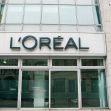The once-popular MLM business LuLaRoe has hit another bump in its downward tumble. On February 2nd, Washington state Attorney General Bob Ferguson shared in a press release that LuLaRoe will settle its lawsuit with the state. The settlement will require LuLaRoe to pay out $4.75 million to independent retails who lost money during their time working with the company.
LuLaRoe is an MLM or multi-level marketing business that sells women's clothing, specifically colorful leggings and blouses. With MLM business models, workers sign up as "independent retailers." These independent retailers work under other independent retailers to sell the business's product. Generally speaking, MLM independent retailers make money through customer sales as well as commission from recruiting other independent retailers to work under them. In the case of LuLaRoe, the company has found itself at the center of several lawsuits for its operation as a pyramid scheme, with the issue being that LuLaRoe independent retailers are pushed to generate income not by customer sales but by commissions through recruiting other independent retailers lower on the hierarchy.
Throughout the years, there has been debate about whether or not MLM businesses operate as pyramid schemes which by and large are illegal around the nation. Pyramid schemes focus on selling products or services to independent retailers, with higher-ranking retailers earning a majority of their income off the commission of those working under them. Legitimate MLM businesses focus on customer sales rather than commission-generated income.
In the case of LuLaRoe, independent retailers found themselves purchasing thousands of dollars in inventory only to turn around and sell that inventory to other independent retailers working underneath them. In October of 2017, a class-action lawsuit was filed against the company in California. The lawsuit claimed that the company was operating as a pyramid scheme costing independent distributors thousands of dollars in investments. Two years later, Washington state Attorney General Ferguson also filed a lawsuit against the company claiming it was a pyramid scheme. In the lawsuit, Ferguson explains that LuLaRoe “established, promoted, operated, and participated in an unlawful pyramid scheme in violation of the Washington Antipyramid Promotional Scheme Act." The California lawsuit made similar allegations stating that the company engaged in, “misconduct, including unfair business practices, misleading advertising, and breach of contract."
LuLaRoe Advertises Misleading Income Potential
In a press release, Ferguson explains that LuLaRoe misrepresented the profitability of the company and how much independent retailers could make in a given month. Ferguson points to LuLaRoe executives who claim that independent retailers are able to sell anywhere from $15,000 to $20,000 worth of merchandise each month. These claims have been unfounded, as many independent retailers have found themselves taking a significant loss after being left with unsold inventory and thousands of dollars worth of debt.
Other misleading claims made by the company include the potential to make full-time income for part-time work. At events hosted by the company for independent retailers, the incomes of top-selling executives and independent retailers high on the chain were often pushed as the standard for what independent retailers new to the company could make.
Communication issues and false promises also existed between the company and independent retailers. Independent retailers were promised upon sign-on that select unsold inventory could be refunded at 90%. However, the process to obtain a refund was cumbersome, confusing, and somewhat arbitrary. Many of the women who sold LuLaRoe were unable to secure the refunds and had to rely on selling whatever leftover product they had to recuperate some of their funds.
LuLaRoe Independent Retailers Left With Mounting Debt
Over the years, it has been well documented just how many independent retailers have lost money because of LuLaRoe's business structure. A BuzzFeed article highlights the experience of some of these women.
30-year-old Jamie Craig shares that she invested a total of $15,000 and was told by independent retailers above her that she needed to continue purchasing inventory in order to have the styles and sizes her customers would want. Craig highlights another important detail of the business model which led to the inevitable failure. Craig explains, "The market is so over-saturated, but yet they still let consultants sign up to sell. The people that signed on when they first started up are the people making money."
Another independent retailer, 31-year-old Katie Denney Martin shares, "I had to use credit cards not to start the business, but to continue it. I can’t even calculate the time I spent away from my family, or the stress I have gone through in the last year, but I would say I put in around $11,000 total when all is said and done, and I probably only made about $4,000. Everything I had went immediately back into my business, or to pay off what I’d spent on inventory and supplies on credit cards."
Washingtonians Will Reap Majority of Settlement
The $4.75 million settlement will be split into two parts. $4 million will go toward independent retailers like Martin and Craig who lost income because of their ventures with LuLaRoe. The attorney general's office is estimating that roughly 3,000 Washingtonians will benefit from the settlement. The remaining $750,000 will go to the attorney general's office to cover the expense of investigating the company's deception. Commenting on the settlement, AG Ferguson shares,
“LuLaRoe tricked Washingtonians into buying into its pyramid scheme with deceptive claims and false promises. As a result, thousands lost money and two individuals made millions from their scheme. Washingtonians deserve fairness and honesty — and accountability for those who don’t play by the rules.”
In addition to paying the settlement fee, LuLaRoe will be required to follow stricter guidelines including publishing an income disclosure that reflects how much an independent retailer can realistically make, as well as clarify the terms of their inventory refund policy.






